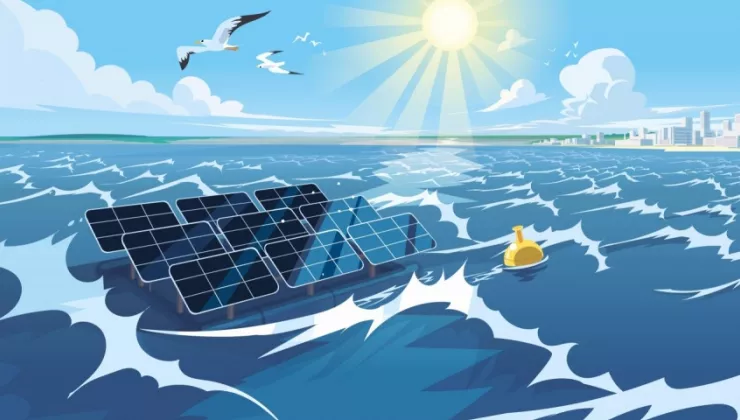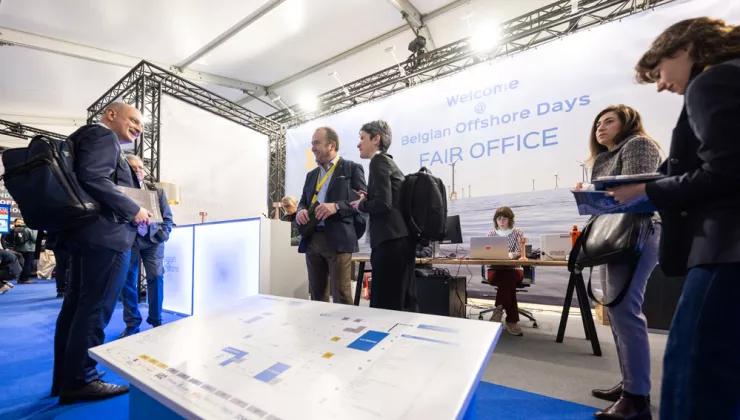Towards an ocean pact with an eye for a sustainable blue economy
The new European Commission attaches great importance to the future of Europe’s seas and oceans. The Commision will therefore introduce an “Ocean Pact” aimed at making EU waters more sustainable, forward-looking, and safe. This pact is meant to guide Europe’s maritime goals in response to climate change, economic transition, food security, and geopolitical challenges.
In a recently published position paper, Blue Cluster calls on the European Commission to fully commit to an Ocean Pact that not only protects existing activities, but also speeds up the integration of new and innovative ones. The goal is to keep our seas both ecologically and economically healthy.
Blue Cluster believes that the key to a strong and resilient blue economy lies in innovation, shared use of sea space, digital technology, and restoring nature. While traditional fishing remains important, the biggest growth - both economically and ecologically - will come from new maritime industries.
Priorities
Blue Cluster puts forward six strategic priorities:
- Maritime safety: investing in a European maritime surveillance system based on digital technology, AI and cooperation between Member States;
- Multi-use: evolving towards multiple use of the available space at sea, including offshore ‘mariparks’ where energy, aquaculture and nature restoration go hand in hand;
- Nature-based solutions (NBS) and nature-inclusive design (NID): integrating nature restoration into all offshore infrastructure, with a focus on ecologically robust and climate-proof designs;
- Renewable energy at sea: accelerating the roll-out of new renewable energy infrastructure: in addition to wind energy, other innovative forms of energy production such as floating solar panels, wave and tidal energy, and associated energy storage must also be given every opportunity;
- Smart data infrastructure: setting up a European Ocean Data Hub with digital twins of the ocean (DOT), real-time monitoring and open access to data;
- Smart ports and maritime logistics: transforming ports into strategic hubs for energy, data, safety and the circular economy.

Approach and ambitions
To achieve the above priorities, Blue Cluster advocates a coordinated EU investment effort of at least €15 to €19 billion between 2025 and 2030. These resources should come from existing European programmes such as Horizon Europe, EMFAF, CEF and InvestEU.
The European Ocean Pact offers a unique opportunity to put Europe on the map worldwide as a pioneer in sustainable ocean policy. By focusing on innovation, cooperation and nature inclusiveness, the EU can provide the blueprint for a future-proof maritime policy.
More info
Background information
The European Ocean Pact is a plan by the European Commission to use our seas and oceans in a sustainable and smart way. The goal is ‘healthy’ oceans: healthy for marine life and a healthy economic ecosystem where there is room to accelerate innovation.
The goal is to make agreements that apply to the whole of Europe, with attention to innovation, nature conservation, food supply, energy from the sea and safety. The Pact brings together European countries, companies, researchers and residents to work on a single shared vision for the blue economy. This means responsibly developing new economic opportunities that are also good for nature.
The final text of the document is currently being worked on. In the future, the Pact will serve as a basis for laying down rules, setting up collaborations and providing funds for projects at sea.
The official presentation of the European Ocean Pact is scheduled for 9 June 2025 during the UN Ocean Conference in Nice (France).
News update
The text of the European Ocean Pact has officially been published and released.


